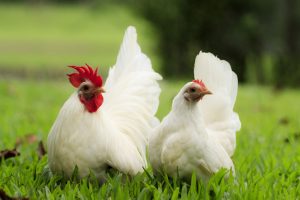
Keeping backyard chickens as pets or food sources is a growing hobby in the United States. It can be fun and productive and is easy to get the hang of, but that’s not to say that it doesn’t require some dedicated work. Like any animal, chickens need constant care and maintenance, but once you learn the basics and some helpful tricks, it can be a very rewarding and enjoyable pastime.
There’s a lot of great information about raising chickens, but starting with the essential things every new chicken keeper should know is important. Keep these standard guidelines in mind when you start caring for your chickens!
Tend to Them Daily
You must check-in and spend some time tending to your chickens daily, like letting the dog out or filling your horse’s hay trough. Ensure they’re properly fed and have fresh, clean water. You can install a feeder or waterer to help minimize waste and manage appetite fluctuation, as chickens have different appetites depending on the season.
Your chickens must have clean water every day. Check on or refill it twice if it’s summertime or a particularly scorching day. Chickens are picky and will not drink water if it’s dirty or won’t drink very much. Ensure they have crisp, clean water daily to prevent dehydration and illness.
Check-in with your flock to affirm that they seem healthy and active. Collect and store eggs daily to protect them from predators and keep hens from sitting on them or laying outside the nesting box.
Choose the Right Breed
People keep chickens for a couple of different reasons. Sometimes they’re just looking for a fun pet, some people want a productive investment for eggs or meat, or some want to gain more control over where the food they eat comes from.
Certain chicken breeds are better for eggs and others for meat—a select few sufficiently serve both purposes. The Rhode Island Red breed, for example, is known for laying eggs and can produce brown eggs. The Orpington, while still good for eggs, is better for raising chickens for meat as the hens can reach up to 8 pounds.
Some breeds are suited to particular climates, so do your research and keep this in mind when planning your flock. They vary in temperament and color as well. Many people opt for multiple breeds to have diverse colors to tell their hens apart more easily and cultivate various products.
Keep the Coop Clean
You’ll want to ensure your chickens have an ideal home to live in and protect them from the elements, so once you find the right one, it’s imperative to maintain it. A clean, hygienic coop fosters a happy, healthy flock.
Promote good health and prevent disease among your hens by scooping droppings and loose feathers daily with a hand shovel. Perform a thorough cleaning every six months to keep the environment fresh and in good condition. This includes completely changing the bedding, cleaning and replacing nesting materials, and washing the food and water containers.
Apple cider vinegar mixed with water in a spray bottle is an excellent, natural cleaning solution to use routinely to disinfect and prevent a build-up of mold and odor. Remember to wear a mask as you clean and wash your hands every time.
Regularly Monitor Their Health
Visit your flock every day to check their health and ensure you’re immediately aware of any abnormalities. Get to know your hens and how they interact with one another so you can easily identify when something isn’t right.
Spend quality time with your chickens and let them roam around to keep them happy and healthy—they’ll produce better quality eggs too. Pick them up and examine them individually once every week or two and watch for changes in feather color, amount of shedding, eating and drinking habits, and abnormal eggs.
Whether raising chickens to have fun and feel their love or to generate eggs or meat to sell or eat, they make a valuable contribution to you and your home. Return the favor by taking the time and effort to care for them properly.
Give your flock the home they deserve with a superior chicken coop from Deer Creek Structures! All our coops are fully enclosed. Two sides are Galvalume and the roof for weather protection for the chickens. The Galvanized hardware cloth 1/2″ mesh on the remaining two sides protects against predators. A small chicken door can be unlocked for free-range poultry, and roost bars and nest boxes are built-in.
Contact us at (254)546-2276 to learn more about our prefabricated and custom-size chicken coops for sale in Texas!
